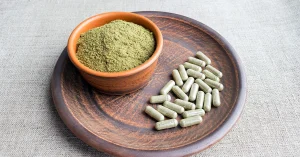
The body is composed of 60% to 70% of water, depending on the morphology. After oxygen, water is the most important element of life. This water is essential for all vital processes. Fluids occupy almost all the spaces of our body, both inside the cells and outside. In this article we will talk about drinking water in detail. Click here for drinking water tampa.
Why we should drink water?
The water:
-maintains the volume of blood and lymph
-provides saliva for swallowing food
-serves as a lubricant for joints and eyes
-maintain body temperature
-allows chemical reactions in the cells
-allows the absorption and transport of ingested nutrients
-allows the neurological activity of the brain
-ensures the hydration of the skin
-eliminates waste from digestion and various metabolic processes
Visit this site for drinking water tampa.
How much water to drink?
In a temperate climate, a person of average size spends more than 2 liters of body water per day. In fact, the body loses more than one liter per day of body water through the urine, and the same amount through sweat, stool, and breathing (as revealed by the mist on a mirror placed near the mouth).
When to drink water?
We must not rely on the signal of thirst to decide to drink. When one is active, one has time to lose a lot of water before feeling thirsty. It is, therefore, necessary to make the habit of drinking throughout the day.
Is it better not to drink during meals? Nothing opposes it in the scientific literature. According to an expert, the only constraint is that it can cause discomfort because of the volume in the stomach. The important thing is to drink enough. If a person likes to drink moderately while eating, she should not be deprived of it.
However, pregnant women who experience nausea and vomiting may reduce their discomfort by avoiding drinking just before meals, during or just after 3.
Can we drink too much water?
Even when drinking a lot of water, there is no danger of “diluting” nutrients that have been ingested or excreted. Although extremely rare in a healthy person, excessive water intake can still cause a potentially dramatic blood problem. This is sometimes encountered during sporting events, in marathon runners or cyclists.
A large influx of water, beyond the amount needed for biological functions, will not cause magic benefits. It will not improve the firmness or appearance of the skin or the health of the nails and hair.
What is dehydration actually?
The dehydration is defined according to body weight. A water loss of as little as 1% to 2% of body weight is already considered dehydration. A loss of 15% to 20% of body weight can cause death.
Dehydration can be acute, as a result of intense exercise, or rather chronic, as a result of insufficient and prolonged consumption of water or other drinks.
The best way to detect dehydration is to observe the color of the urine. In healthy people, it should be very pale yellow.
The first signs of dehydration:
-dark urine
-dry mouth and throat
-lack of energy
-dry skin
-a headache and dizziness
-intolerance to heat






